We are living in times of large-scale changes to talent acquisition with new specializations popping up each year and an ever-increasing skills gap. Companies are heavily reliant on the merits of their tech talent, and technical recruiters are only becoming more indispensable.
That is why we created the Tech Recruiting Times. We wanted to fill the gap of content for tech recruiters and engineering leaders and help prepare the people on the front lines of these changes.
Every two weeks we will offer advice, opinions, and breaking news through interviews with the industry’s leading professionals.
We hope you enjoy this week’s issue!
This week’s topic: How can recruiters adapt to the challenges and opportunities of this year?

This week’s guest: Brian Fink

Brian Fink is currently a Talent Acquisition Partner at McAfee, where he specializes in tech recruiting for engineering and data science roles. With 15+ years of specialized recruiting experience at startups and large companies like Amazon and Twitter, he has helped a wide range of professionals ranging from entry-level candidates to C-Suite executives take the next step up in their careers and stretch their professional capabilities.
Brian is a leader in Boolean search, sourcing technology, software development, and cloud technologies.
1. What are some creative or out-of-the-box sourcing techniques you can recommend to recruiters who are forced to do more with less now?
First, you need to double down on your Boolean logic and search strings. Boolean logic is not going to go away.
Before you go wild and get a million different tools, sourcers should master the fundamentals of Boolean really well. Boolean is the name of the game, and not just because companies are constricting their budgets right now. Even if you have just one tool — whether it’s LinkedIn Recruiter or even just Google and Bing — if you’re skilled in Boolean search you can use it with anything and it will make your searches more effective.
You can improve your skills by tuning into a webinar I’m teaching or following Boolean experts like Irina Shamaeva and Shally Steckerl.
Once you master Boolean there are several creative places where you can source. I don’t know many recruiters who have tried this, but I will actually search for engineers on Airbnb because the app will tell you the likelihood that the person will respond to you.
Slack is another example of free solutions recruiters aren’t using. You can find publicly available Slack Channels through Slofile to jump into that fit your candidate demographic.
If you are focusing on diversity, using a website like Meetup.com is a great way to connect with groups like Blacks In Technology, Women In Tech, or Latinx In Tech. You can offer to have a speaker from your organization come to that group, share their knowledge, and invest in these organizations.
However, recruiters must keep in mind when they are joining these groups they should be bringing value to the community. I can’t stress enough for recruiters to remember that it’s not your conversation — it’s their conversation, their safe place. So don’t go up there thinking you’re the jobs man and just here to push jobs or “peddle an opportunity.”
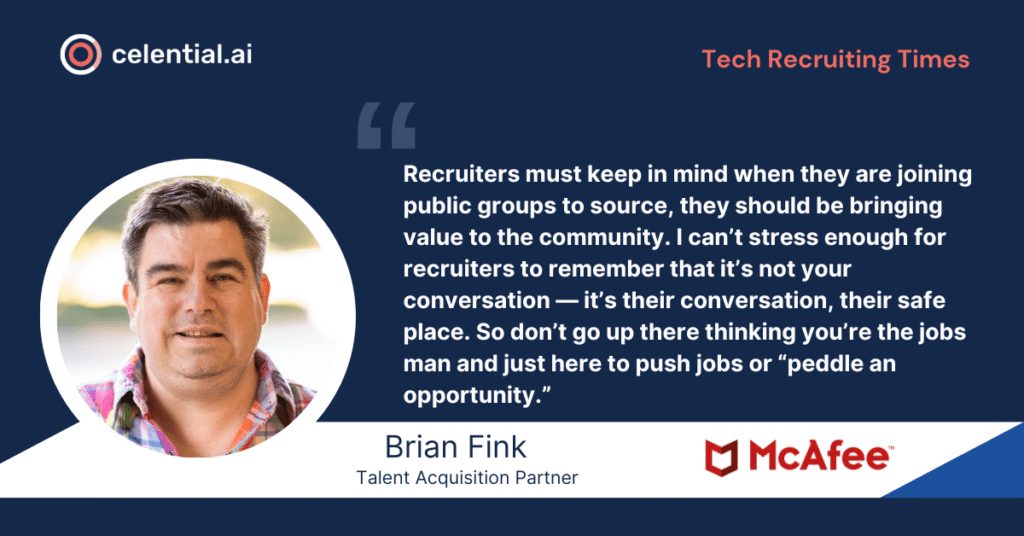
You have to communicate and post your own thoughts on the topics they discuss. It will cost you a little time, and time is not free — but it’s worth the investment.
Say that you’re recruiting female entrepreneurs. Where do you go to find these women? They are all being hit up constantly by recruiters on LinkedIn — as are developers and engineers with the same spammy messages. But if you’re contributing to their community on Slack or at an event and enriching their followers, you are making a real human connection that sets you apart from other recruiters.
Jim Stroud says that you always need to bring a gift when you go into somebody’s house for the first time. (He’s another one to check out — he’s got a lot of great, executable ideas for recruiters).
Everyone knows that selling jobs is part of what we’re doing. But you’ve got to go further than that. What’s in it for the candidate? Do you understand them?
2. What are the fundamentals that recruiters need to rely on to get through these hard times? How do they continue providing great candidate experience, and focus on Diversity, Equity, and Inclusion with fewer resources?
It’s hard to ignore that layoffs are taking place every day. Companies are trimming 5-7% of their employees right now. Amazon is only going to be recruiting early career candidates.
That makes life very difficult for recruiters, especially those who want to help individuals level up, upskill, and move into their next role. It’s a very different environment from 18 months ago when the world was on fire and we couldn’t find nearly enough recruiters.
This leads to the biggest thing I’m worried about at the moment. Recruiters have had more on their plate than ever before, and the dish is becoming smaller.
As people are being sacrificed to cost cutting, sourcing teams across the spectrum are being let go. At the same time, with fewer resources, recruiters have to do more.
Recruiters are now responsible for employer branding. They are also responsible for carrying a great EVP through to candidate experience. As Maya Angelou said, “It’s not what you did or what you said — it’s how you made people feel.”
Justice, equity, diversity, inclusion, and belonging are important parts of that. Recruiters need to actively look to see what we can do to remedy the mistakes of the past and produce a better future.
I’m worried that as recruiters are spinning all these plates, something is going to drop. I don’t know if recruiters have the time or the bandwidth to keep this act up.
But when it comes to advise on the fundamentals, I once asked Glen Cathey about the three things a recruiter has to know to be successful. His advice was to first know three areas and then second, three tools better than anyone else.
For example, I like to think that I know engineering really, really well — whether it’s frontend or backend, web technologies, or the cloud. And my three tools are Boolean, LinkedIn, and Slack.
So know your toolset, but also be ready to grab hold of something new.
His final fundamental skill for recruiters is time management. This is your greatest defense against burnout. Some tools I use are Pomodoro, which helps block off your schedule into manageable working blocks. I also use Calendly to automate candidate scheduling.
As for maintaining a great candidate experience, I heard Stacy Zapar talk about Friday Feedback Blitz at LinkedIn Talent Connect. She blocks off two hours to let every candidate know where they are in the process before we head into the weekend.
This is hard, heavy lifting. It’s typically only done as white glove service for executive search roles. But it creates great candidate experience to show that kind of determination and dedication to every role.
Part of providing candidate experience in technical recruiting is to pick up some technical knowledge. You can go to meetups, watch YouTube videos, or just talk to engineers. When you do talk to engineering candidates, don’t be afraid to say “I don’t know how that works,” “Can you explain that,” or “Wow, that’s hard.” They will school you and you’ll be on the edge of your seat.
Doing this in your intake meetings will separate the people who get frustrated easily and are not a good culture fit from those that are truly building great products and are down to earth.
You don’t need to know how to do the work to be a great recruiter, but you do need to understand some of the fundamentals and table stakes. Especially if you are in an area that is hot at cloud computing. A colleague of mine said why don’t you go to the cloud meetups if you claim to be a great cloud recruiter.
So I would go to them once or twice a month and hear about things I didn’t understand but then I could bring these topics up in my meetings with candidates and connect over them.
You’ll deliver a lot more value to your candidates if you can talk to them about what they do.
3. For technical recruiters affected by the layoffs, how should they present themselves to new organizations, and what should they put on their resumes to stand out?
Due to layoffs and the economic climate, the competition is harder than ever before.
That means you need to show cause and effect in your resume, with numbers. Don’t say you hired a lot of people — say you hired 500 people. Break that 500 down into how many you hired per month, how many phone interviews it took, and the relevant data people need to understand the story and what took place.
You also need to invest in your recruiting community. Since my first recruiting job, I have never gotten a job by going to a career fair or submitting an application. It was always through knowing somebody who wanted me to work at their organization.
You get out what you put in. So, volunteer to be a mic runner at an ERE event. Volunteer to write an article for SourceCon. Volunteer to lead a webinar for Recruiting Daily. Put your two cents in on recruiter chat on Twitter. Join a Clubhouse or answer questions in a Facebook group. People want to know the best ATS — tell them what is good and what isn’t good. Invest in the community. Let people know who you are, and make space to answer their questions.
Here’s another tip. When you look for a new role, don’t just use the “Jobs” search on LinkedIn to find job descriptions. Enter “I’m hiring” and “recruiter” in the search box to see if anyone has posted about hiring a recruiter.
You can find a lot of roles that aren’t advertised in the Jobs section on LinkedIn this way.
4. What free resources do you recommend to professionals in recruiting to level up their careers and become more dynamic?
I highly recommend HubSpot Academy. You can get certified in different marketing techniques for free — whether it’s how to write a better email, how to perform SEO, how to write better content for your JDs or LinkedIn posts, or how to develop an EVP. You might even learn that you prefer employer branding over recruiting.
LinkedIn Learning is also free if you have a LinkedIn Recruiter or Enterprise account, and Recruiting Daily also offers free webinars for sourcers and recruiters
Another free way to gain information is to follow Maren Hogan, James Ellis, or other talent leaders on Twitter. There are also people on LinkedIn who want to share information with you, such as Jonathan Kidder, Michael “Batman” Cohen, or me. If you want to book time with me, just shoot me a DM on LinkedIn. We can bond for thirty minutes to pull apart the big problem that you’re having. Let’s make it happen!
5. With such drastic changes happening across the market and within organizations, where do you see the future of the recruiter role for this year?
The big topic for this year is going to be internal mobility. How do you focus on building an internal recruiting engine that gets a current member of your organization studying Java Development into a Java Role? How do you get a software SDR the opportunity to be a BDR?
It’s a great story, and everyone loves it. Companies don’t want to lose their people, and internal mobility helps them do more with less.
However, the problem is that recruiting wasn’t involved — and we should have been involved from the beginning.
How many times have we been working on a requisition, and all of a sudden an internal candidate pops up and we have to tell everyone that we’re going with them?
I think that recruiters are going to figure this out and get more proactive about internal mobility.
Another change is that recruiters are going to occupy more of a hybrid role. They won’t just be involved with looking for people and candidate experience — research and data will become a much larger component.
Research and data are critical to gaining credibility with the business you support. I don’t think there are a lot of recruiters that understand “how the sausage is made”. That doesn’t mean you have to be a coder, but it does mean you need to understand why a technical role is fundamental to the business.
You also need to know what’s going on in the marketplace. Is it difficult to recruit go developers? Are we below market compensation? You can’t just be an order taker with hiring managers — you need to be capable of running a strategy session between two equals.
They are not talking down to you, and you are not talking down to them. It is a true partnership and you meet in the middle on facts.
Keep in mind that you actually don’t want to be irreplaceable. You don’t want to build a machine that only works if you’re the person that runs it. What you want to build is a repeatable process that is highly scalable and smart — that is a skill set that you can take everywhere.
This is a tip for recruiters who are laid off, too — you have the power to take what you’ve learned and make it scalable to different organizations and environments.
Table of Contents

















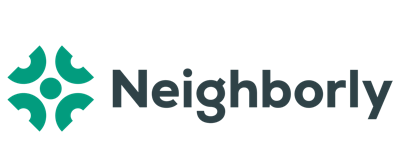



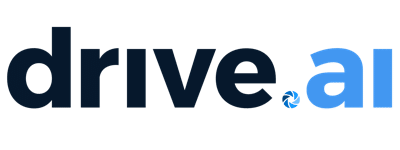



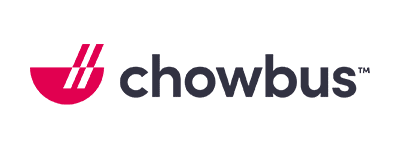




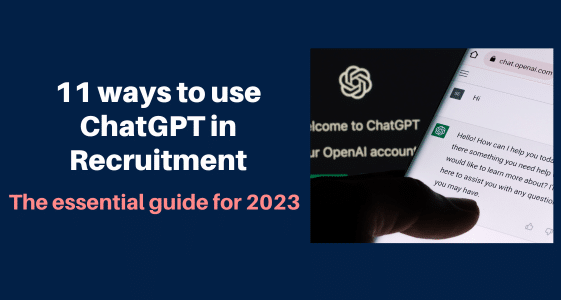


Submit a Comment